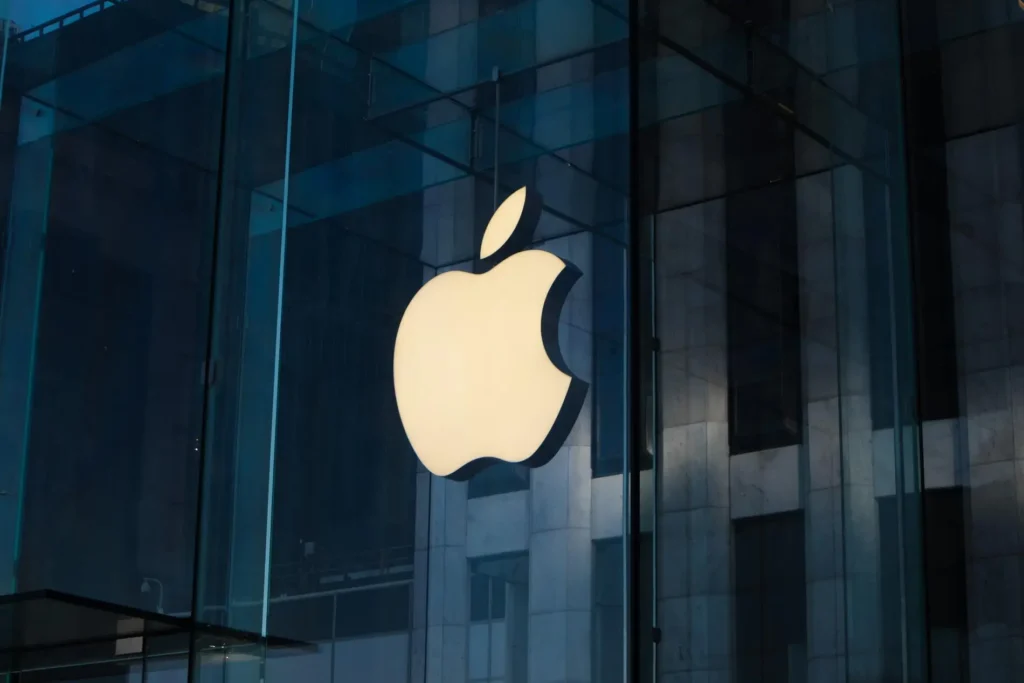seniorspectrumnewspaper – Apple announced a new $100 billion investment in the US on Wednesday, raising its total planned investment to $600 billion over four years. This move follows President Donald Trump’s recent announcement of a 100% tariff on chip imports, with exemptions for companies manufacturing in the US. Apple’s expansion aligns with these new trade policies, helping the company avoid additional tariffs.
Read More : Google Highlights AI’s Impact on Search Queries and Clicks
The White House also plans to increase tariffs on India by 25%, bringing the total to 50% on oil imports from Russia. Apple depends heavily on Indian manufacturers for iPhone production, making this additional US investment strategically important. It reinforces Apple’s efforts to keep more of its supply chain within the United States, avoiding costly tariffs and trade complications.
Apple CEO Tim Cook emphasized the company’s commitment to US manufacturing in a statement. Cook highlighted new partnerships with 10 American companies that produce key components for Apple products. These efforts form part of Apple’s American Manufacturing Program, which focuses on expanding local production.
Previously, Apple’s $500 billion investment plan targeted building AI servers, research and development, and silicon engineering in the US. The new funding deepens Apple’s collaboration with US-based component makers like Corning and Amkor. Corning, for example, produces glass for iPhones and Apple Watches. Apple stated that soon, every iPhone and Apple Watch worldwide will feature cover glass made in Kentucky.
Amkor’s Arizona-based advanced chip packaging and testing facilities are another focus. Apple is investing in building a complete silicon supply chain in the US, aiming to reduce dependence on foreign suppliers and enhance control over critical components.
Expanding Partnerships and Strategic Moves in US Manufacturing
Apple’s latest investment includes working with Samsung to develop innovative chip technology in Texas. These chips will power iPhone cameras with cutting-edge image sensors. Reports suggest Apple may shift some sensor purchases from Sony to Samsung due to tariffs, as Samsung operates chip plants in the US, while Sony does not.
In addition, Apple plans to expand component manufacturing through partnerships with Texas Instruments, Broadcom, and GlobalFoundries. These investments will increase domestic production capacity and help Apple meet growing demand with locally sourced components.
A White House spokesperson told Bloomberg that the investment helps bring critical component production back to the US, strengthening economic and national security. While the Trump administration has long urged Apple to manufacture the iPhone domestically, practical challenges remain. CNN reported that making iPhones fully in the US is difficult, if not impossible.
Read More : US Soldier Detained for Sharing Tank Info with Russia
Apple’s current approach echoes its handling of relations with the Trump administration during his first term. For instance, Apple and Trump publicly opened a Mac Pro factory in Texas in 2019, though the factory had operated since 2013. Similarly, Apple’s partnership with Amkor was announced earlier in 2023 but is now promoted as part of the American Manufacturing Program.
As a trillion-dollar company, Apple can absorb billions in investments to avoid tariffs while maintaining competitiveness. The new announcement may also reflect planned investment increases, repackaged to align with current trade policies and political optics. This strategy enables Apple to navigate complex international trade challenges while continuing to expand its US manufacturing footprint. Apple’s increased investment signals a long-term commitment to US production and innovation. It aims to balance global supply chain risks with growing demand for advanced technology and local economic contributions.


